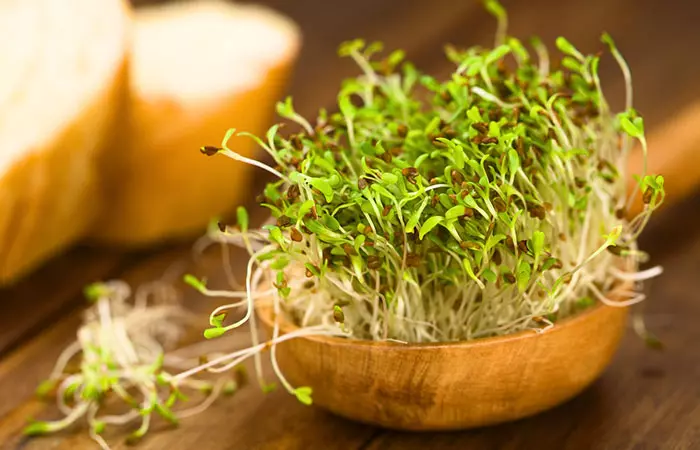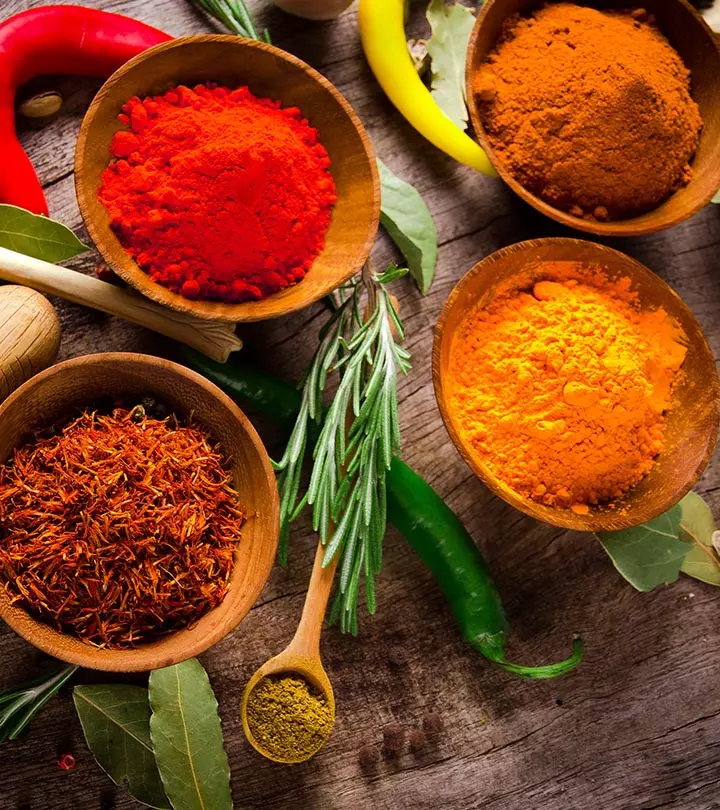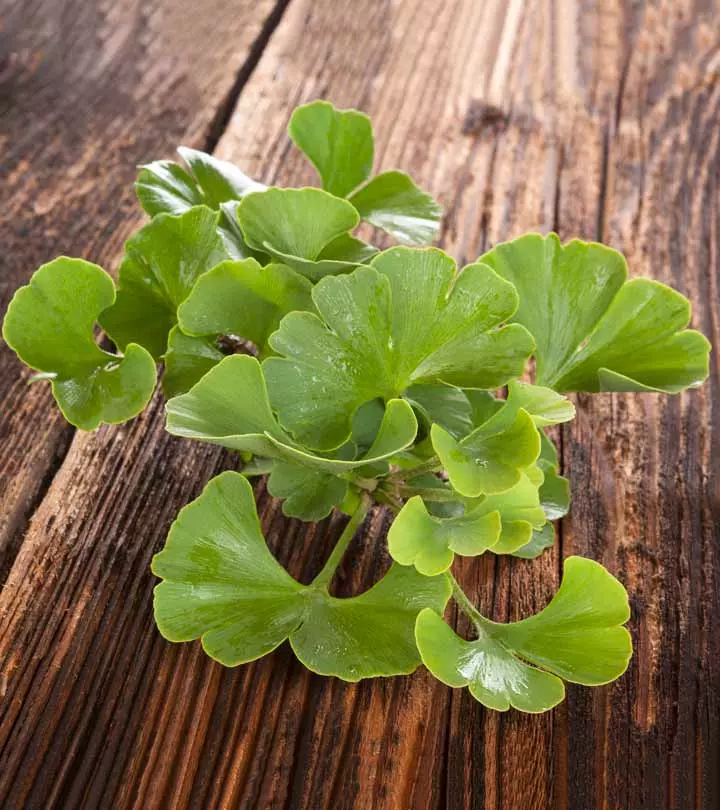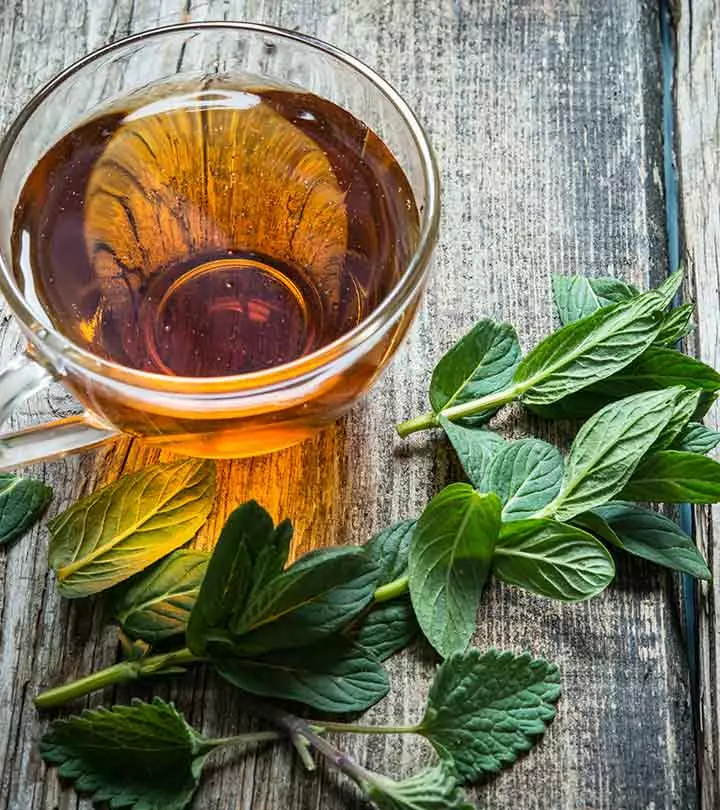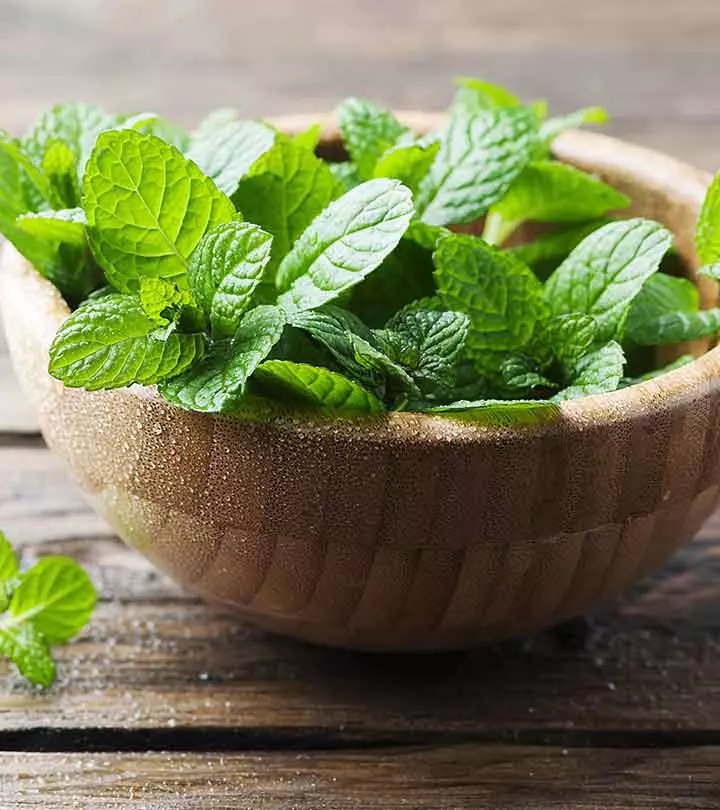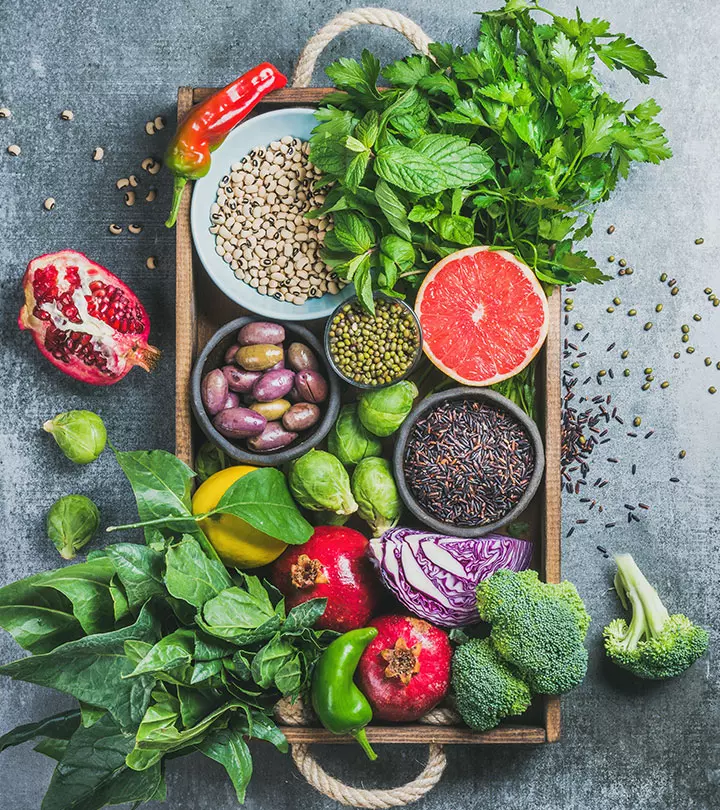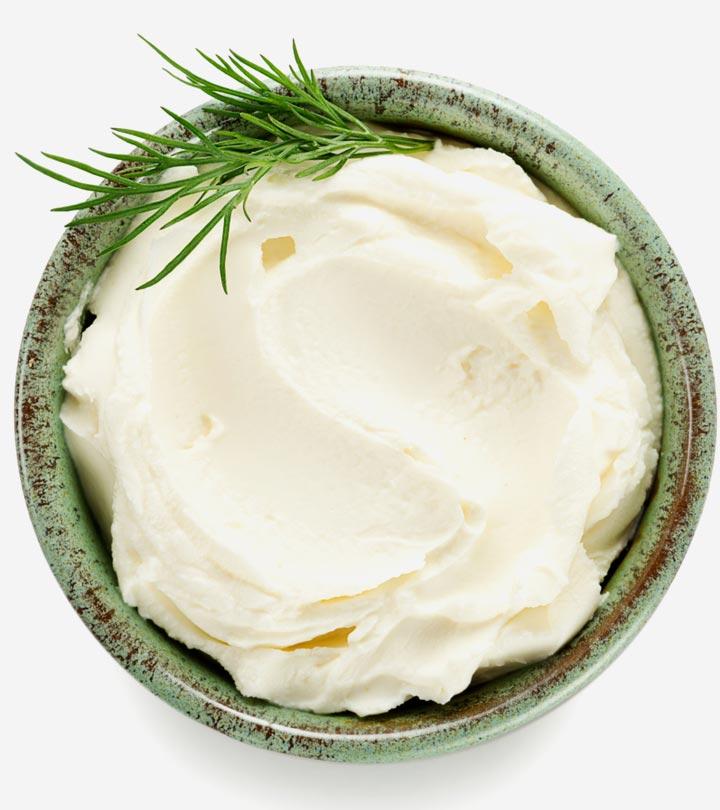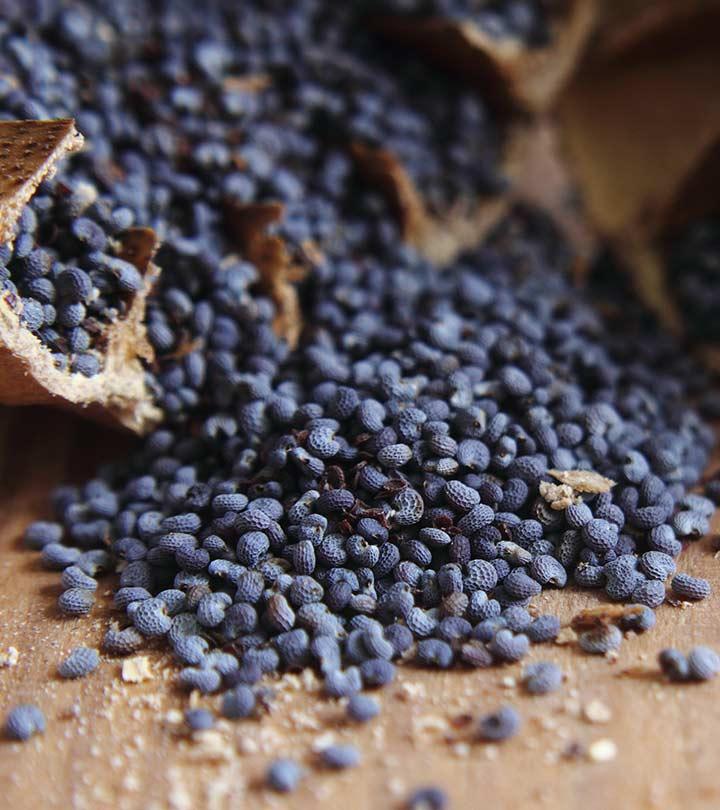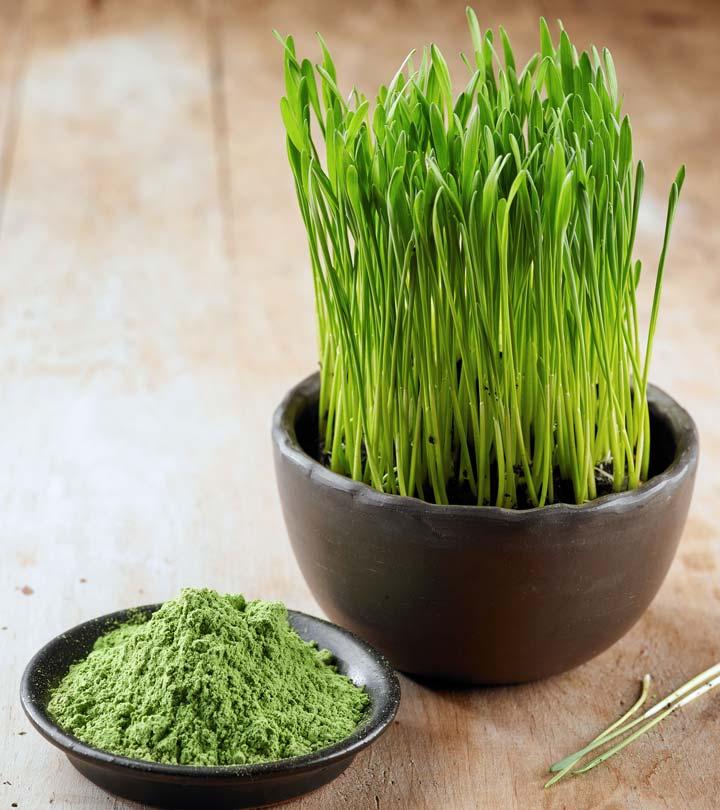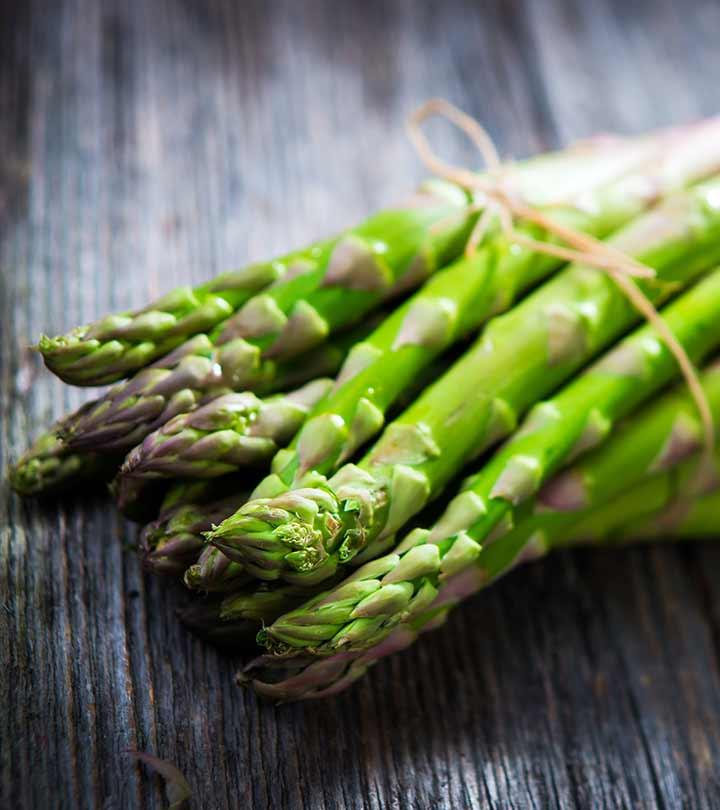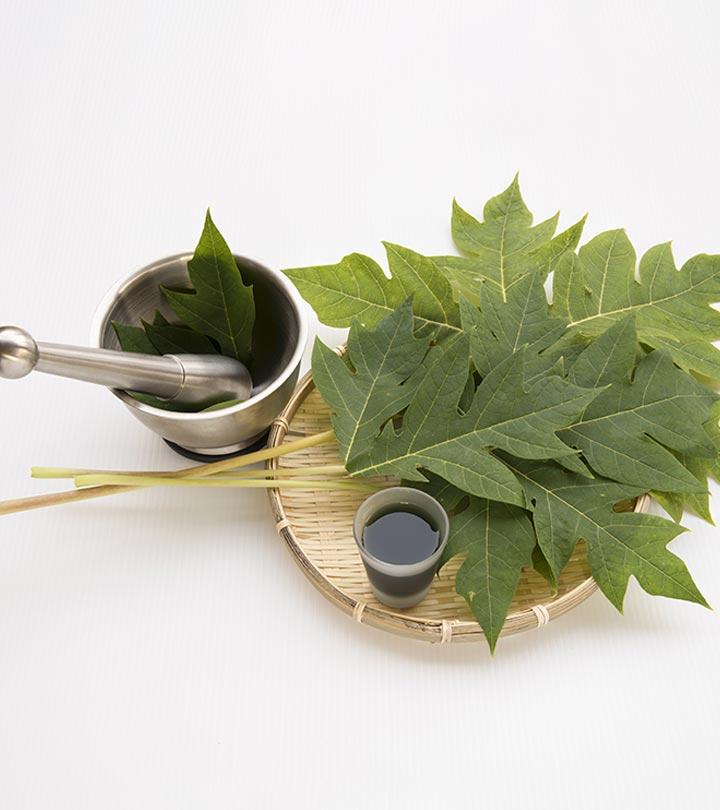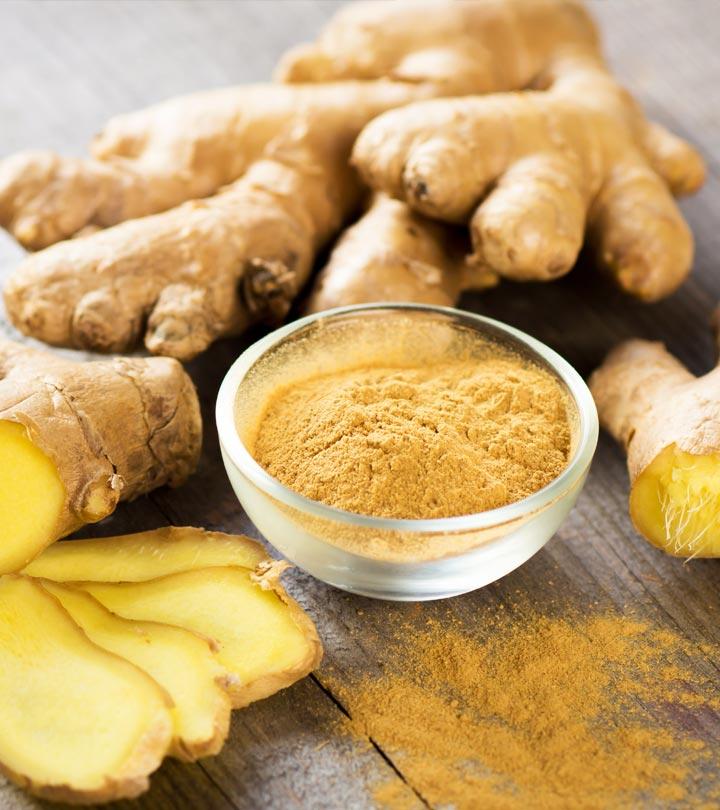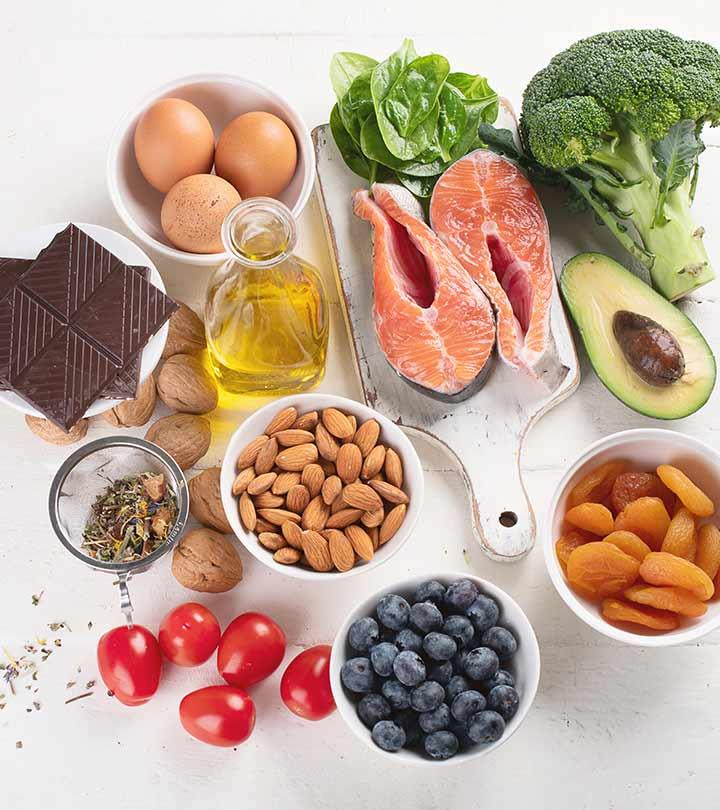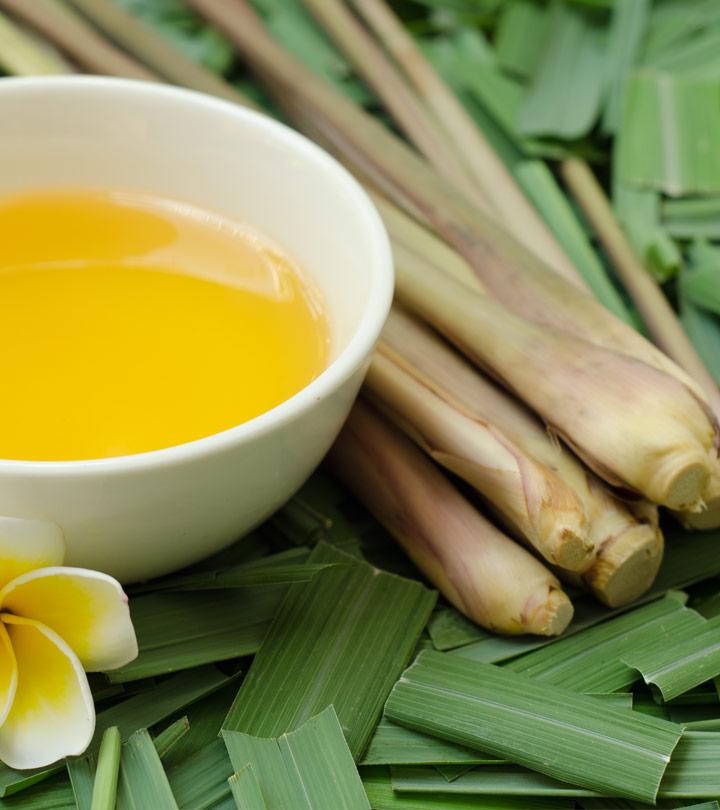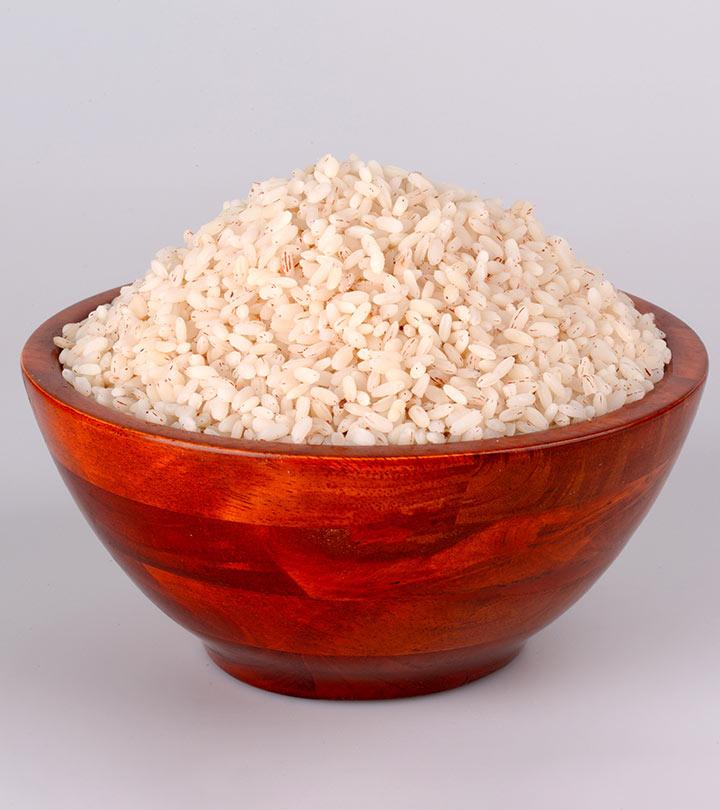16 Potential Benefits Of Alfalfa For Skin, Hair, And Health
A deeper look into the positive effects of consuming this medicinal herb on your health.
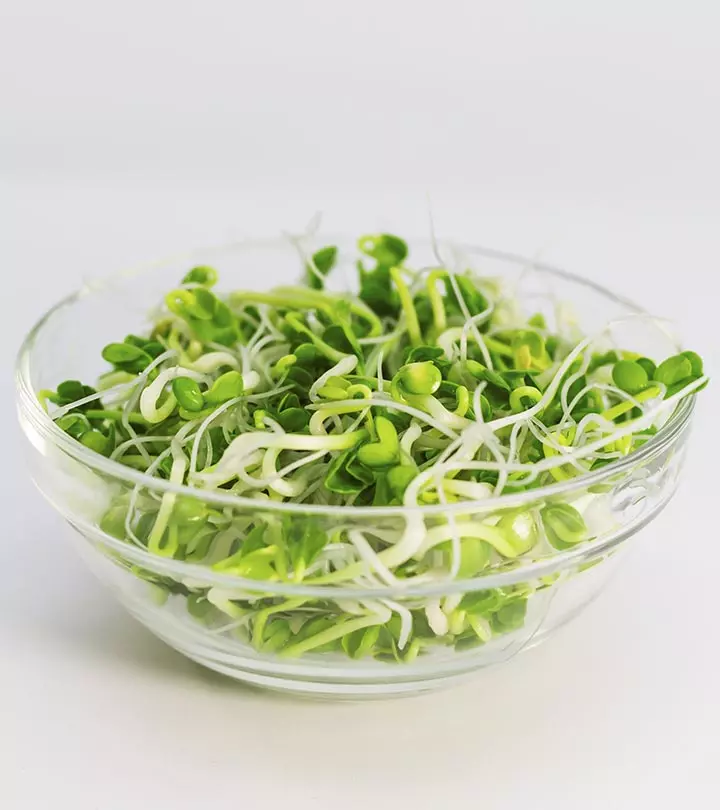
Image: Getty
Alfalfa is a medicinal herb that has been used in Ayurveda for centuries. It is an effective medicine for digestive and arthritis problems. The benefits of alfalfa are numerous and can be attributed to its wide variety of vitamins, minerals, and bioactive compounds.
Alfalfa (also known as Medicago sativa) can be taken in the form of supplements, sprouts, dried leaves, and seeds. The intake of alfalfa can help lower cholesterol, control blood sugar levels, relieve menopause symptoms, and reduce cellular damage.
In this article, we have discussed the potential benefits of alfalfa for your health, hair, and skin and its possible side effects. Keep reading!
 Know Your Ingredient: Alfalfa
Know Your Ingredient: AlfalfaWhat Is It?
A herb from the legume family that is traditionally used in alternative medicine.
What Are Its Benefits?
It lowers cholesterol levels, regulates blood sugar levels, and relieves symptoms of menopause and asthma.
Who Can Consume It?
All except those on blood-thinning medications and pregnant women.
How Often?
1 cup or 33-40 g daily.
Caution
People who have a weak immune system, lupus, or autoimmune diseases should avoid it.
In This Article
Alfalfa Nutrition Facts
Alfalfa is nutritious and low in calories. It is rich in vitamins, amino acids, and fiber. It is usually consumed as sprouts or as a herbal supplement.
Alfalfa contains vitamins K and C, folate, manganese, copper, riboflavin, magnesium, and iron (1).
- Vitamin K: 10. 1 mcg
- Folate: 11.9 mcg
- Vitamin C: 2.7 mg
- Iron: 0.3 mg
- Copper: 0.1 mg
- Manganese: 0.1 mg
- Magnesium: 0.1 mg
- Riboflavin: 0.042 mg
 Trivia
TriviaA cup of alfalfa sprouts contains 1.32 grams of protein and 0.7 grams of carbohydrates. The sprouts also have bioactive plant compounds, such as saponins, folic acid, phytoestrogens, flavonoids, and alkaloids (2). All these nutrients offer certain health benefits.
Alfalfa is often available in two major types. Learn about them in the section below.
- Dormant Alfalfa: This type goes dormant in the fall and shows reduced growth in response to the low temperatures and shorter days. It is typically planted in areas like the Upper Midwest, Canada, and the Northeast where cold winters are common.
- Non-Dormant Alfalfa: The non-dormant variety, in contrast, continues to grow throughout the winter and is typically planted in regions like Mexico, Arizona, and Southern California that have milder climates. This type is known for its ability to withstand winter conditions. However, it may have reduced persistence and is more susceptible to winter-kill in very cold climates.
Alfalfa offers important health benefits. Check them out in the next section.
Types Of Alfalfa
Health Benefits Of Alfalfa
1. May Help Lower Cholesterol
Alfalfa is rich in plant-based compounds known as saponins. These may help reduce serum cholesterol levels by binding bile salts with cholesterol in the body.
A study conducted on monkeys found that saponins in alfalfa decreased the blood cholesterol percentage (3). However, long-term studies are needed to understand this benefit for humans.
Another study conducted on 15 patients with hyperlipoproteinemiai A genetic condition that causes improper fat breakdown, resulting in fat accumulation in the blood. found that eating 40 g of heat prepared alfalfa seeds for eight weeks helped lower total cholesterol and bad low-density lipoprotein (LDL) (4).
2. May Help Control Blood Sugar Levels
The anti-diabetic and diuretic properties of alfalfa keep the spiking sugar levels under control. A study conducted by Cairo University found that alfalfa sprouts decreased the high glucose levels in diabetic animals (5).
Alfalfa is a traditional plant used to treat diabetes. A mice study conducted by the University of Ulster shows that alfalfa has anti-hyperglycemici A medication or an agent that lowers elevated blood glucose levels and helps manage diabetes. , insulin-like, and insulin-releasing properties that may help treat diabetes. The sprouts may also improve metabolic health (6). However, more studies are required to observe similar benefits in humans.
3. May Help Relieve Menopause Symptoms
Alfalfa is rich in phytoestrogens that can be used to counter the symptoms of menopause. These are chemically similar to the estrogen hormone and are available in two types, namely, alfalfa-coumestrol and genistein (7).
A study conducted by the University of Siena on 30 menopausal women found that a particular product based on alfalfa extracts was able to treat menopausal symptoms like hot flashes, vaginal dryness, and night sweats (8).
Another study conducted by the Beckman Research Institute on breast cancer survivors found that alfalfa users were less likely to get sleep interruptions (9).
4. May Help Reduce Cellular Damage
The antioxidant effects of alfalfa may help reduce cellular damage caused by free radicals. It may be an effective cure for disorders associated with the central nervous system (CNS), heart, and metabolism, and promote heart health. Alfalfa is an excellent compound with antioxidant properties that may reduce cellular damage caused by iron oxide nanoparticles (10).
A study conducted by the L.R. Institute of Pharmacy found that alfalfa may possess cerebroprotective properties. These, along with its antioxidant properties, help reduce the risk of cerebral ischemia (stroke) (11).
A rat study states that alfalfa may have an antioxidant effect against carbon tetrachloride-induced oxidative stress and liver damage (12). More human studies are required to understand this benefit of alfalfa.
5. May Treat Kidney, Bladder, And Prostate Problems
The diuretic properties of alfalfa may help ease kidney stones and relieve issues related to the bladder and the prostate. Some research states that alfalfa decoction may be of use in treating kidney stones (13). However, limited research is available to support these claims. We need more evidence in this regard.
6. May Help Relieve Asthma
Alfalfa was traditionally used to treat respiratory problems like asthma (14). However, more long-term research focused on the anti-asthmatic effect of alfalfa is required.
7. May Help Treat Osteoarthritis And Rheumatoid Arthritis
Pectic polysaccharides extracted from alfalfa stems were found to have anti-inflammatory properties. These may help in the treatment of osteoarthritisi A form of arthritis that develops as the pliable tissue at the ends of bones ages and wears down. and rheumatoid arthritis (15).
In another study, the ethyl acetate extracts of alfalfa were found to suppress the production of pro-inflammatory cytokinesi A particular class of signaling molecules released by immune cells and a few other cells that promote inflammation. . These could help treat inflammatory issues in mice (16).
However, more studies are required to understand this phenomenon at the molecular level in humans.
8. May Treat Liver Damage
Alfalfa extracts were found to help reconstruct damaged liver. The release of liver enzymes into the blood could be one reason for liver damage. Oral administration of alfalfa extracts (250 mg/kg) was00 found to reduce liver enzyme concentration in the blood (17).
9. May Treat Upset Stomach
Anecdotal evidence suggests that the dietary fiber in alfalfa may help treat several problems related to digestive problems. Some of these may include constipation, bloating, gastritisi A blanket term for various conditions that lead to stomach lining inflammation, causing pain and discomfort. , and nausea. However, there is no scientific evidence to prove this claim.
10. May Aid Weight Loss
The fiber in alfalfa sprouts may help with weight management. It could keep one satiated and promote healthy weight loss when combined with regular exercise and proper rest. However, direct research is lacking in this aspect.
In the following section, we will explore the ways alfalfa may benefit your skin. None of these benefits have been backed by scientific evidence. Hence, use alfalfa for skin health only after checking with your doctor.
What Are The Benefits Of Alfalfa For Skin?
11. May Work As A Cleanser
The chlorophyll in alfalfa may help cleanse the skin.
12. May Prevent Dry Skin
Vitamin A in alfalfa may help treat dry skin. The nutrient may also improve complexion and skin texture. Alfalfa could also help in the maintenance and construction of skin.
Anecdotal evidence suggests that alfalfa may also promote hair health.
What Are The Benefits Of Alfalfa For Hair?
The vitamins B1 and B6 in alfalfa may promote hair health. Here are the other nutrients in alfalfa that may benefit hair.
13. May Offer Protein
The protein in alfalfa may promote hair growth. Including the grains, seeds, and sprouts of alfalfa in your diet may provide you with adequate protein needed for healthy hair.
14. May Offer Vitamins
Alfalfa contains vitamins B1, B6, and C that may promote hair health. Vitamin C, especially, fights free radical damage and may help slow down the associated hair loss (18). The nutrient may also help in improving the circulation of blood in the scalp and hair follicles.
15. May Offer Minerals
Alfalfa contains several minerals, such as calcium, iron, and zinc. These may help slow down hair loss. Zinc is known to stimulate hair growth (18). Iron deficiency is also one of the causes of hair loss (18).
16. May Offer Silica
The silica in alfalfa may slow down the process of hair loss. It may also help in the prevention of baldness.
Some benefits of alfalfa are yet to be studied. However, you may go ahead and include the sprouts in your diet. But before you do so, it is important to know about their ideal dosage and safety.
Dosage And Precautions
Dosage
The dosage of alfalfa sprouts for regular use is not specifically identified. Please consult your doctor. For those with high cholesterol levels, 40 grams of alfalfa seeds taken thrice a day may help (4). Alfalfa can also be used in the form of strained tea or tincture.
Precautions
Alfalfa sprouts may cause foodborne illness. Preparing and storing the sprouts in the appropriate way can prevent this.
Sprouts should be grown and stored in a safe place. Store them in a refrigerator at 40oF or below to avoid bacterial contamination.
Though alfalfa is generally safe for consumption, it does have a few side effects that you need to keep in mind.
What Are The Side Effects Of Alfalfa?
Alfalfa is possibly safe for most people. However, consumption of alfalfa seeds in the long run may cause some adverse effects in pregnant women, those with autoimmune conditions, and those taking medications. Hence, it is important to consult a doctor.
- May Cause Issues During Pregnancy
The intake of alfalfa supplements in excess amounts during pregnancy may cause adverse effects. Alfalfa acts similar to the estrogen hormone, potentially causing issues. Ingesting alfalfa may also promote menstruation. However, limited research is available in this regard.
- May Aggravate Autoimmune Diseases
Long-term use of alfalfa may stimulate the autoimmune system and aggravate autoimmune diseases. Alfalfa seeds contain L-canavanine, an amino acid that may trigger systemic lupus erythematosusi An autoimmune condition when the immune system attacks its tissues, leading to fatigue and joint pain. (an autoimmune disease) (19).
People with other autoimmune disorders, such as multiple sclerosisi A condition when the immune system attacks the nerves' protective layer and results in visual loss or poor movements. , should avoid the consumption of alfalfa.
Children, senior citizens, pregnant individuals, and people with a compromised immune system should avoid the intake of alfalfa. This is due to the possible contamination of the sprouts in some parts (20). Sprouts, in general, could be contaminated by bacteria (21).
- May Interact With Drugs
Alfalfa is rich in vitamin K that is responsible for blood clotting. People who are on blood-thinning medication, like warfarin, should avoid taking alfalfa (22).
Though the side effects appear severe, using alfalfa in the right way can minimize the risk.
How To Use Alfalfa
- Alfalfa Sprouts
You can add fresh alfalfa sprouts to salads or soups. These can be sprouted at home easily (though they take 5 to 6 days). Here is the procedure:
- Add 2 tablespoons of alfalfa seeds to a bowl and cover them with 2–3 times the amount of cool water.
- Let them soak overnight.
- Drain and rinse the sprouts well with cool water. Remove as much water as possible.
- Store the sprouts out of direct sunlight and at room temperature for 3 days. Rinse and drain them thoroughly every 8–12 hours.
- On Day 4, relocate the sprouts to an area with indirect sunlight to facilitate photosynthesis.
- On Day 5 or 6, your sprouts are ready to eat.
- Herbal Tea
You can make alfalfa herbal tea by using equal proportions of alfalfa, peppermint, and raspberry leaves. Add 1 tablespoon of tea mixture to 8 ounces of boiling water. Let this mixture steep for at least 5 minutes before serving. This herbal tea is also useful in nursing conditions.
- Multi-vitamin Tincture
Alfalfa multi-vitamin tincture is easy to administer and a safe option for both kids and adults. The process of making a tincture is similar to that of the tea. However, in the case of the tincture, the steeping time is nearly 3 weeks or more. A small drop of the tincture is enough for the benefits.
- Liquid Chlorophyll
Liquid chlorophyll is a concentrated liquid form of chlorophyllins from the fresh alfalfa plant. It is rich in nutrients and has detoxifying and purifying properties.
Cat, a blogger, shares her and her husband’s way of eating alfalfa by making an egg alfalfa salad. She shares her recipe and writes, “While he has no problem eating them raw, I’m a bit more reticent – they’re too grassy/spicy/bleurgh for my fussy tastebuds (i).” She continues, “So this egg salad was the perfect vehicle. They are a nice replacement for cress or onions, giving the egg a bit of a kick.”
Buying alfalfa seeds from reputed manufacturers and growing them in safe and warmer temperatures is the safest bet.
 Quick Tip
Quick TipInfographic: Benefits Of Alfalfa
Alfalfa is a herb with many medicinal properties. It is loaded with many essential vitamins, minerals, and bioactive compounds. If used as suggested, this herb offers an array of health benefits.
The following infographic elucidates the benefits and dosage of alfalfa. Check it out! Illustration: StyleCraze Design Team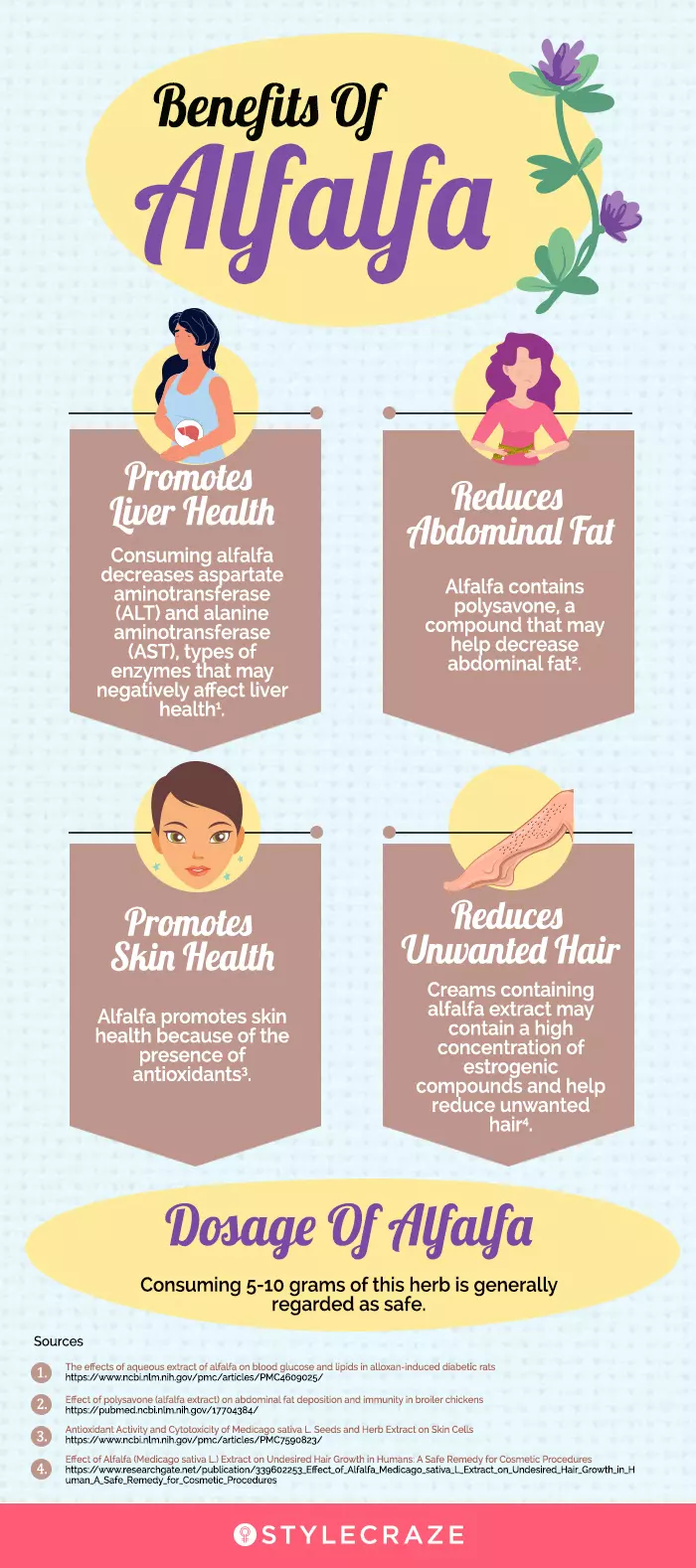
There is a long history of using alfalfa in Ayurvedic medicine because of its many benefits. It is packed with potent antioxidants, vitamins, and minerals. Alfalfa benefits stem from this rich nutritional profile and it may help promote heart, kidney, and bone health. It is good for your hair and skin, keeping them healthy and rejuvenated. You can consume its sprouts, supplements, or seeds to reap its benefits. However, excessive use may have adverse effects. There has been concern that alfalfa can cause issues during pregnancy, aggravate autoimmune disorders, or interfere with medications. Consult your physician if you experience any side effects.
Frequently Asked Questions
Can humans eat alfalfa hay?
No, humans cannot eat alfalfa hay. But alfalfa in its sprouted form can be eaten by humans in sandwiches and salads.
Does alfalfa have iodine?
No, alfalfa does not contain iodine.
What is the pH of alfalfa?
The pH of alfalfa is between 6.5-7.0.
Does alfalfa contain gluten?
No, alfalfa grass does not contain gluten.
Does alfalfa contain selenium?
Yes, alfalfa contains 0.2 mcg of selenium (1).
Is alfalfa good for thyroid?
Alfalfa may trigger autoimmune diseases in some cases. Hypothyroidism is one such disease. Those with the condition must consult their doctor before taking alfalfa. There is insufficient information to know if alfalfa could help the thyroid gland.
What is the difference between alfalfa and clover?
Clover can grow in very low pH soils and contains more PPO (polyphenol oxidase) than alfalfa. However, its longevity and yield potential are lower than alfalfa.
Does alfalfa increase testosterone?
Yes, a study showed that testosterone levels could rise with daily alfalfa consumption. Additionally, the quercetin found in alfalfa sprouts may boost men’s testosterone levels (23).
Is alfalfa good for teeth?
Alfalfa contains significant amounts of calcium, phosphorus, and other minerals. Studies found that it could remineralize teeth better than commercially available re-mineralizing products (24).
Key Takeaways
- Alfalfa may lower cholesterol and sugar levels.
- It may aid in weight loss.
- You can add alfalfa spout to soup or salad and make herbal tea.
- It helps moisturize your skin, improve hair growth, and prevent hair fall.
- It may interfere with medications and aggravate autoimmune disorders.
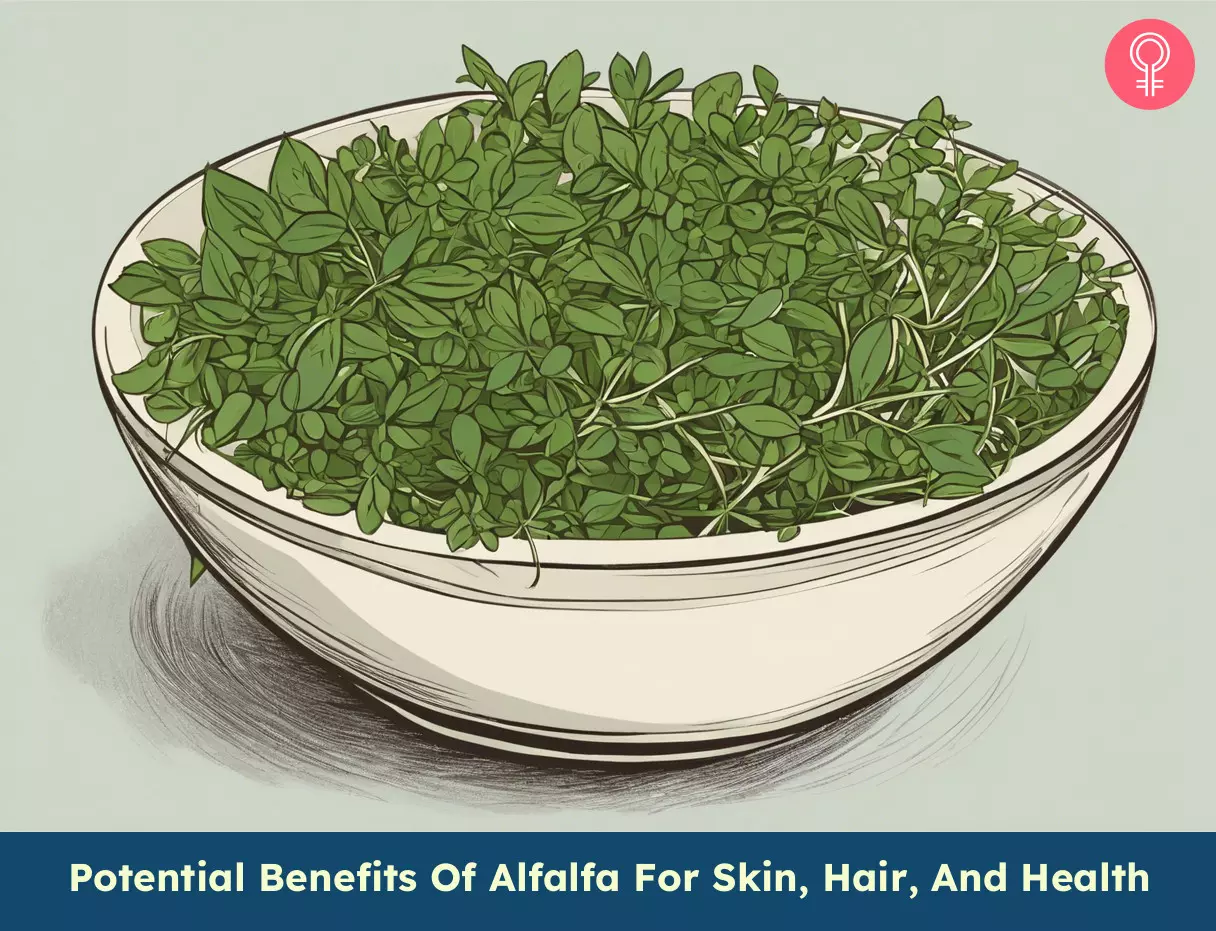
Image: Stable Diffusion/StyleCraze Design Team
References
Articles on StyleCraze are backed by verified information from peer-reviewed and academic research papers, reputed organizations, research institutions, and medical associations to ensure accuracy and relevance. Read our editorial policy to learn more.
- Alfalfa seeds, sprouted, raw, FoodData Central.
fdc.nal.usda.gov/fdc-app.html#/food-details/168384/nutrients - Bora KS, Sharma A. Phytochemical and pharmacological potential of Medicago sativa: a review. Pharm Biol. 2011;49(2):211–220.
https://pubmed.ncbi.nlm.nih.gov/20969516 - Malinow, M R et al. “Cholesterol and bile acid balance in Macaca fascicularis. Effects of alfalfa saponins.” The Journal of clinical investigation vol. 67,1 (1981): 156-62.
https://www.ncbi.nlm.nih.gov/pmc/articles/PMC371583/ - Mölgaard J, von Schenck H, Olsson AG. Alfalfa seeds lower low density lipoprotein cholesterol and apolipoprotein B concentrations in patients with type II hyperlipoproteinemia. Atherosclerosis. 1987;65(1-2):173–179.
https://pubmed.ncbi.nlm.nih.gov/3606731 - Seida A, El-Hefnawy H, Abou-Hussein D, Mokhtar FA, Abdel-Naim A. Evaluation of Medicago sativa L. sprouts as antihyperlipidemic and antihyperglycemic agent. Pak J Pharm Sci. 2015;28(6):2061–2074.
https://pubmed.ncbi.nlm.nih.gov/26639479 - Gray AM, Flatt PR. Pancreatic and extra-pancreatic effects of the traditional anti-diabetic plant, Medicago sativa (lucerne). Br J Nutr. 1997;78(2):325–334.
https://pubmed.ncbi.nlm.nih.gov/9301421 - Poluzzi, Elisabetta et al. “Phytoestrogens in postmenopause: the state of the art from a chemical, pharmacological and regulatory perspective.” Current medicinal chemistry vol. 21,4 (2014): 417-36.
https://www.ncbi.nlm.nih.gov/pmc/articles/PMC3963458/ - De Leo V, Lanzetta D, Cazzavacca R, Morgante G. Trattamento dei disturbi neurovegetativi della donna in menopausa con un preparato fitoterapico [Treatment of neurovegetative menopausal symptoms with a phytotherapeutic agent]. Minerva Ginecol. 1998;50(5):207–211.
https://pubmed.ncbi.nlm.nih.gov/9677811-treatment-of-neurovegetative-menopausal-symptoms-with-a-phytotherapeutic-agent/ - Ma H, Sullivan-Halley J, Smith AW, et al. Estrogenic botanical supplements, health-related quality of life, fatigue, and hormone-related symptoms in breast cancer survivors: a HEAL study report. BMC Complement Altern Med. 2011;11:109. Published 2011 Nov 8.
https://pubmed.ncbi.nlm.nih.gov/22067368-estrogenic-botanical-supplements-health-related-quality-of-life-fatigue-and-hormone-related-symptoms-in-breast-cancer-survivors-a-heal-study-report/ - Sadeghi L, Tanwir F, Yousefi Babadi V. Antioxidant effects of alfalfa can improve iron oxide nanoparticle damage: Invivo and invitro studies. Regul Toxicol Pharmacol. 2016;81:39–46.
https://pubmed.ncbi.nlm.nih.gov/27445214-antioxidant-effects-of-alfalfa-can-improve-iron-oxide-nanoparticle-damage-invivo-and-invitro-studies/ - Bora KS, Sharma A. Evaluation of Antioxidant and Cerebroprotective Effect of Medicago sativa Linn. against Ischemia and Reperfusion Insult. Evid Based Complement Alternat Med. 2011;2011:792167.
https://pubmed.ncbi.nlm.nih.gov/21785631-evaluation-of-antioxidant-and-cerebroprotective-effect-of-medicago-sativa-linn-against-ischemia-and-reperfusion-insult/ - Al-Dosari MS. In vitro and in vivo antioxidant activity of alfalfa (Medicago sativa L.) on carbon tetrachloride intoxicated rats. Am J Chin Med. 2012;40(4):779–793.
https://pubmed.ncbi.nlm.nih.gov/22809031-in-vitro-and-in-vivo-antioxidant-activity-of-alfalfa-medicago-sativa-l-on-carbon-tetrachloride-intoxicated-rats/ - Bahmani, Mahmoud et al. “Identification of medicinal plants for the treatment of kidney and urinary stones.” Journal of renal injury prevention vol. 5,3 129-33. 27 Jul. 2016.
https://www.ncbi.nlm.nih.gov/pmc/articles/PMC5039998/ - Bora, Kundan Singh, and Anupam Sharma. “Phytochemical and pharmacological potential of Medicago sativa: A review.” Pharmaceutical biology 49.2 (2011): 211-220.
https://www.tandfonline.com/doi/full/10.3109/13880209.2010.504732 - Chen L, Liu J, Zhang Y, Dai B, An Y, Yu LL. Structural, thermal, and anti-inflammatory properties of a novel pectic polysaccharide from alfalfa (Medicago sativa L.) stem.J Agric Food Chem. 2015;63(12):3219–3228.
https://pubmed.ncbi.nlm.nih.gov/25756601-structural-thermal-and-anti-inflammatory-properties-of-a-novel-pectic-polysaccharide-from-alfalfa-medicago-sativa-l-stem/ - Hong, Yong-Han et al. “Ethyl acetate extracts of alfalfa (Medicago sativa L.) sprouts inhibit lipopolysaccharide-induced inflammation in vitro and in vivo.” Journal of biomedical science vol. 16,1 64. 14 Jul. 2009.
https://www.ncbi.nlm.nih.gov/pmc/articles/PMC2720939/ - Amraie, Esmaiel et al. “The effects of aqueous extract of alfalfa on blood glucose and lipids in alloxan-induced diabetic rats.” Interventional medicine & applied science vol. 7,3 (2015): 124-8.
https://www.ncbi.nlm.nih.gov/pmc/articles/PMC4609025/ - Almohanna, Hind M et al. “The Role of Vitamins and Minerals in Hair Loss: A Review.” Dermatology and therapy vol. 9,1 (2019): 51-70.
https://www.ncbi.nlm.nih.gov/pmc/articles/PMC6380979/ - Morimoto I, Shiozawa S, Tanaka Y, Fujita T. L-canavanine acts on suppressor-inducer T cells to regulate antibody synthesis: lymphocytes of systemic lupus erythematosus patients are specifically unresponsive to L-canavanine. Clin Immunol Immunopathol. 1990;55(1):97–108.
https://pubmed.ncbi.nlm.nih.gov/2137742-l-canavanine-acts-on-suppressor-inducer-t-cells-to-regulate-antibody-synthesis-lymphocytes-of-systemic-lupus-erythematosus-patients-are-specifically-unresponsive-to-l-canavanine/ - Alfalfa Seed Decontamination in Salmonella Outbreak
https://www.ncbi.nlm.nih.gov/pmc/articles/PMC2957971/ - Dechet AM, Herman KM, Chen Parker C, et al. Outbreaks caused by sprouts, United States, 1998-2010: lessons learned and solutions needed. Foodborne Pathog Dis. 2014;11(8):635–644.
https://pubmed.ncbi.nlm.nih.gov/25076040-outbreaks-caused-by-sprouts-united-states-1998-2010-lessons-learned-and-solutions-needed/ - Mousa SA. Antithrombotic effects of naturally derived products on coagulation and platelet function. Methods Mol Biol. 2010;663:229–240.
https://pubmed.ncbi.nlm.nih.gov/20617421-antithrombotic-effects-of-naturally-derived-products-on-coagulation-and-platelet-function/ - Daily intake of alfalfa sprouts, but not broccoli sprouts, influence plasma levels of androgen in middle-aged males
https://www.researchgate.net/publication/328784754_Daily_intake_of_alfalfa_sprouts_but_not_broccoli_sprouts_influence_plasma_levels_of_androgen_in_middle-aged_males - In Vitro Assessment Of Alfalfa Plant Extract In Remineralizing Subsurface Carious Lesions Using Quantitative Energy Dispersive X-Ray Analysis With Sem
http://www.journalcra.com/sites/default/files/issue-pdf/22614.pdf
Read full bio of Heather M. Duquette-Wolf
Read full bio of Ravi Teja Tadimalla
Read full bio of Moksha Gandhi








